So, you’re finally considering getting your FFL after reading about all of the awesome benefits. Now you’ve got an image in your head of you sitting at your kitchen table, quietly doing your FFL activities, when suddenly the ATF bursts in, guns blazing, demanding to see every inch of your home! They tell you that they’re seizing all of your inventory because you’ve been keeping your books wrong, and they need to investigate you thoroughly and shoot your dog. (Because … ATF.)
You wouldn’t be the only one to have this fear, which is rooted in misconceptions and the unknown. It’s a common concern for many people. Thankfully, it’s highly inflated and false.
Let’s take a look at three common misconceptions people have about what it means to have a Federal Firearm License.
Table of Contents
Misconception #1: The ATF will be watching you like a hawk.
In our experience, unless you’ve gotten yourself wrapped up in some criminal activity, which we all know you’d never ever do because you’re a law-abiding citizen and all-around great person), this is definitely not going to happen.
First of all, the ATF can only conduct one warrantless inspection per year per federal law. Furthermore, according to the ATF’s website, there were over 135,000 FFLs in fiscal year 2019. They cannot physically inspect that number of licensees in a given year. On average, you could only expect an inspection roughly once every five years. Realistically though, from what we’ve heard from other FFLs who have been in the business 20+ years, they may have had an inspection from ATF once or twice in that 20+ year time period.
Long story short: relax. Conduct yourself like a good citizen, follow the rules, and you’ll have nothing to worry about.
Misconception #2: FFL paperwork is terribly confusing, you’ll do it wrong, and go to jail.
Once again, unless you’re doing it wrong on purpose, this is not an issue. The one important thing that goes along with your record keeping for your FFL is actually very simple. You can think of your bound book of transactions much like you would a checkbook register. Every time something goes in or out of your account (inventory), you mark it down. Nothing too complicated at all!
Keep track of your sales – where things are going and where they’re coming from. And, of course, as a customer of FFL123, we’ll assist you with any questions you might have along the way. What happens if you do get inspected and something is incorrect? Believe it or not, the ATF’s goal is to educate you so that it does not happen again. They’ll tell you what you did wrong, why it was wrong, and how to correct the mistake. The ATF needs to ensure that licensees keep good records in case they need to do an investigation (often just called a “gun trace”) on one of our past customers.
Misconception #3: Trying to keep your personal guns and your work inventory separate is hard.
When it comes to this concern, you have several options. Your first option is just to keep your FFL inventory and your personal collection (guns you had before getting your FFL) completely separate. Then, if you want to add to your personal collection later, just enter it into your books, then mark it out of your books into your personal inventory.
The second option is that you can mark all of your personal guns “Not For Sale” with a little sticker or tag.
Your third option would be to keep a record of your firearms in a booklet you can get from the ATF in which you mark down the make, model, serial number, and a few other pieces of information, making clear which firearms are for your personal use. Having an FFL has no impact on your personal collection. It only impacts you if you go to sell a personal firearm, and even then, it’s not a big deal.
As you can see, having your FFL is truly not as scary or overwhelming as it might seem. FFL123 is more than happy to help you put all of your concerns to rest. Join FFL123 today to start enjoying all of the benefits of having your own FFL.




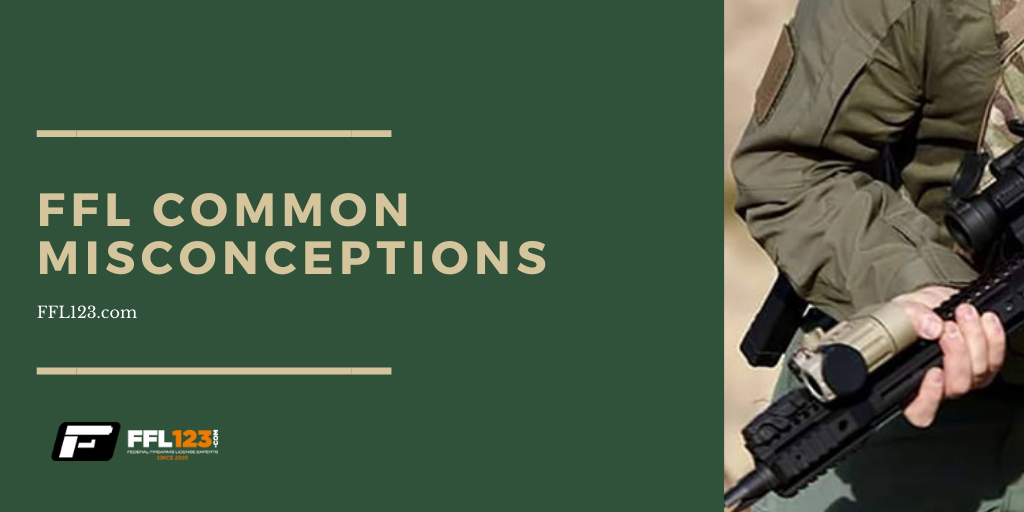
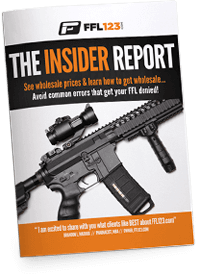
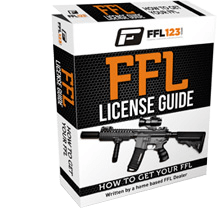
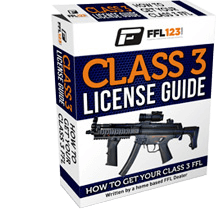
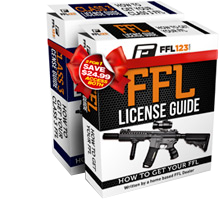
















Good info. I was familiar with and comfortable with the first two. Thanks for the clarification on # 3.